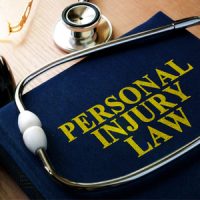If a Patient Slips and Falls at a Hospital, Is It Premises Liability or Medical Malpractice?

In all personal injury lawsuits, you are trying to prove negligence on the part of the person or business that caused your injuries or enabled a preventable accident to happen. Premises liability and medical malpractice are two specific categories of negligence. Premises liability is when a business owner knowingly allowed dangers conditions to persist, causing a customer to get injured. An example is when a customer slips on a wet floor in a supermarket because the employees did not notice that a previous customer spilled milk on the floor. Medical malpractice is when a doctor or nurse causes a patient’s injury or worsens a patient’s illness through a preventable error, such as if a surgeon operates on the wrong knee, a doctor prescribes a medication to which a patient is allergic because she didn’t read the list of allergies in the patient’s chart, or a nurse mistakenly puts too high a dose of medication in a patient’s IV. Not all accidental injuries that happen in hospitals count as medical malpractice. If you got injured in a hospital, contact a South Carolina medical malpractice lawyer.
Hospital Staff Should Have Known That Patient Was a Fall Risk
In 2009, when Sarah began experiencing headaches and dizziness, which can be symptoms of a stroke, her daughter called an ambulance and accompanied her to the hospital. The hospital staff took Sarah to a treatment room in the emergency department but did not let any of her family members come with her, requiring them to stay in the waiting area. Before any nurses could attend to her, Sarah walked to the restroom, and she lost her balance and fell, fracturing her foot.
Sarah sued the hospital for medical malpractice. She claimed that the hospital staff was aware that, due to her medical condition, she was at high risk of falling, and the standard of care dictated that they either send nurses to her promptly to assist her in walking to the bathroom, or else let her family accompany. In other words, leaving her unattended was a breach of the standard of care. (Keep in mind that hospitals are usually very careful to prevent patients from falling, such as by providing wheelchairs for patients who do not ordinarily use them.)
The hospital argued that the court should dismiss Sarah’s claim because what she was alleging was simple negligence, not medical malpractice. In other words, Sarah should have classified her lawsuit as premises liability. The court dismissed the case, bit Sarah appealed, and the appeals court reversed the trial court’s decision, arguing that the trial court had been splitting hairs about the difference between premises liability and medical practice.
Let Us Help You Today
If you got injured at a hospital, a Columbia personal injury lawyer can help you decide whether the best way to move forward is a medical malpractice claim or a premises liability lawsuit. Contact The Stanley Law Group for help with your case.
Resource:
scholar.google.com/scholar_case?case=8460993180151903786&q=premises+liability&hl=en&as_sdt=4,41&as_ylo=2011&as_yhi=2021
https://www.thestanleylawgroup.com/how-has-the-pandemic-affected-traffic-accident-trends/
